Covid lockdown: Concern for riding-school horses' welfare
- Published
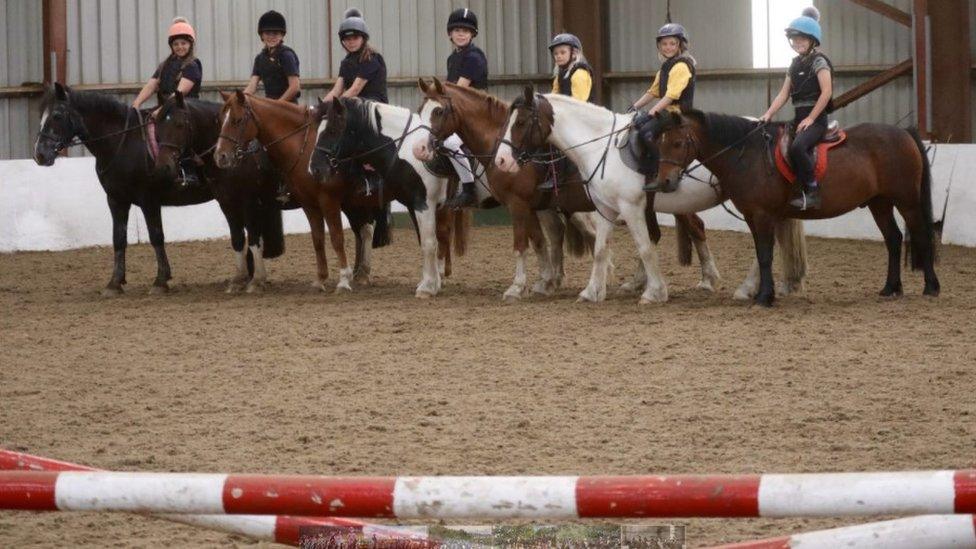
Before lockdown, horses at Talygarn Equestrian Centre would normally have three hours of lessons a day, six days a week
Horses that are usually gentle have been fighting and breaking arena equipment because they are bored in lockdown, a riding school has said.
While horse riding itself is not prohibited during Wales' level four lockdown, external, non-essential businesses like riding schools have had to close.
Used to three hours of lessons a day, horses are currently largely confined to their stables.
Talygarn Equestrian Centre said their animals were also losing muscle.
Amelia Rogers, who runs the facility in Pontyclun, Rhondda Cynon Taf, with her parents said it had been hit hard financially, selling five of its 27 horses to support the others.
"It's a desperate situation for everyone," she said.
The British Horse Society in Wales said riding schools were "the lifeblood of the equestrian industry" and it wants them to reopen in line with children returning to the classroom to ease the strain.
A Welsh Government spokeswoman said it was "continuing to do all we can to protect businesses during these very difficult times".
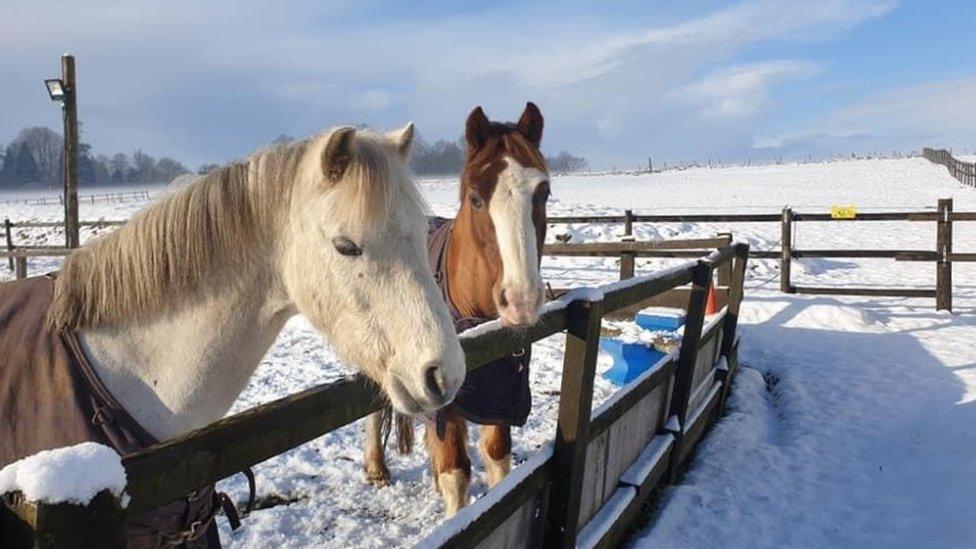
Timmy and Jasper have found the winter lockdown difficult
Prior to the Covid lockdown, 100 people would ride the horses at Talygarn each week during lessons - but the task is currently down to Ms Rogers and three apprentices, who also care for them.
Ms Rogers said: "We can only give them one form of exercise a day. We can't ride them all, so take them out in groups to get rid of excess energy.
"Some will start fighting in the arena, when they're bored they also start breaking things, ripping rugs and breaking sections of arena, like fencing."
In the summer the horses were able to run in fields, but these have been unusable during winter months and the animals have been largely confined to their stables.
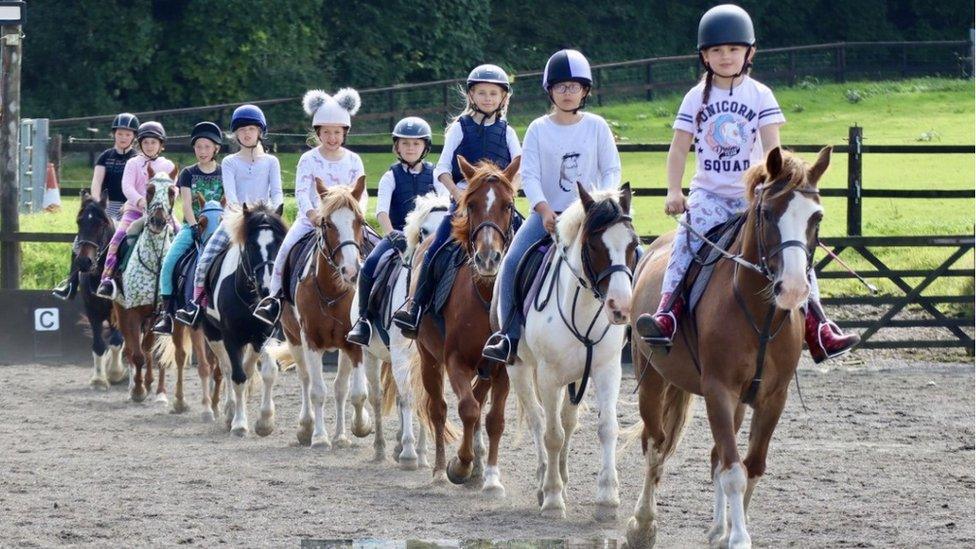
Of the 22 horses at Talygarn, one is owned by a family and six others loaned - only these people are currently allowed to help care for them
"We had 27 horses but, after the first lockdown, we cut the numbers down because of the expense of keeping," she added.
"The sale brought in income, but the only problem is, when we reopen, replacements will need to be bought. You can't run a riding school without horses."
As well as the challenge of "breaking up boredom", Ms Rogers was also concerned horses have lost muscle by not working, which will need to be built back up.
She said there were also many other potential issues related to lack of activity - swollen legs, behavioural issues towards humans and other horses, loss of fitness, stiffness, lameness, and repetitive habits caused by boredom, such as wearing down teeth.
While there has been some business support during both lockdowns, Ms Rogers said "costs don't stop like a pub" - with "significantly high" amounts spent on welfare, vet bills, farriers and bedding, while they have been unable to furlough staff and have seen their own income disappear.
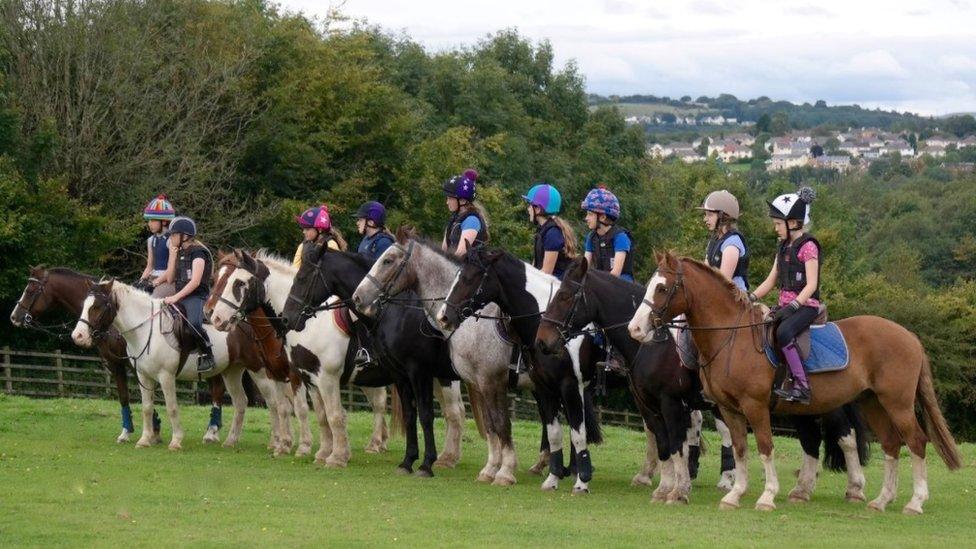
Wet fields in winter mean horses are now mostly confined to stables
People in Wales are now able to exercise outdoors with someone from another household - and Ms Rogers said she believed one-to-one socially distanced lessons should now be allowed, both from an animal welfare point of view and also to help businesses financially.
In England, a campaign was launched by the Ingestre Stables in Staffordshire to ease restrictions and Ms Rogers said she thought the Welsh Government should take similar measures.
"We're already hearing from schools up and down the country that are losing some of their older horses from ailments that are brought on just by horses standing still and not getting worked," said Ingestre's owner Tim Downes.
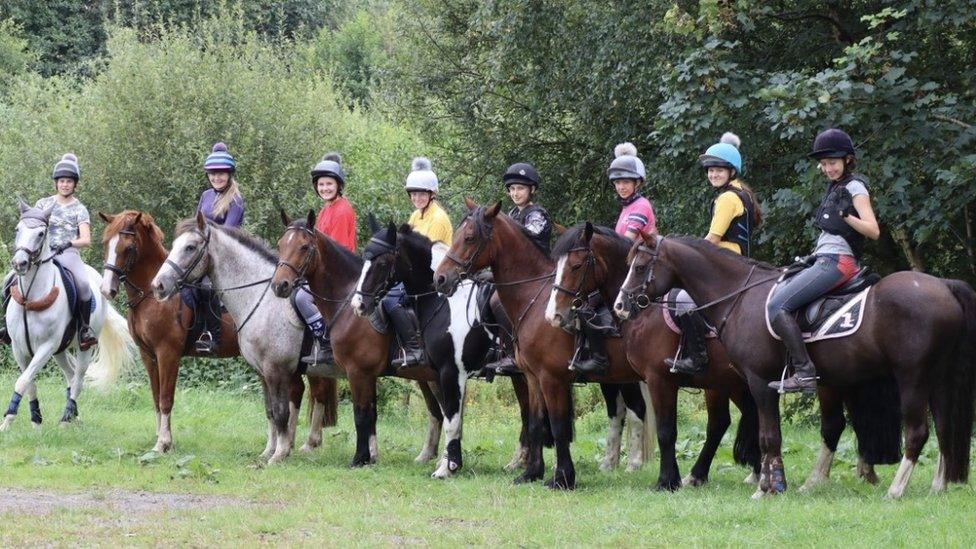
Lessons and tuition at Talygarn have been on hold since the current lockdown started on 19 December
National manager for The British Horse Society in Wales, external Kathryn Stewart said it had provided almost £800,000 support for riding schools and was continuing a public donations campaign to help.
It wants centres to reopen when children return to school classrooms, and she added: "Riding schools are the lifeblood of the equestrian industry and this latest lockdown will cause immense difficulties for them.
"We have been lobbying government throughout the pandemic and will continue working closely with officials to clarify the guidance, along with providing support and information."
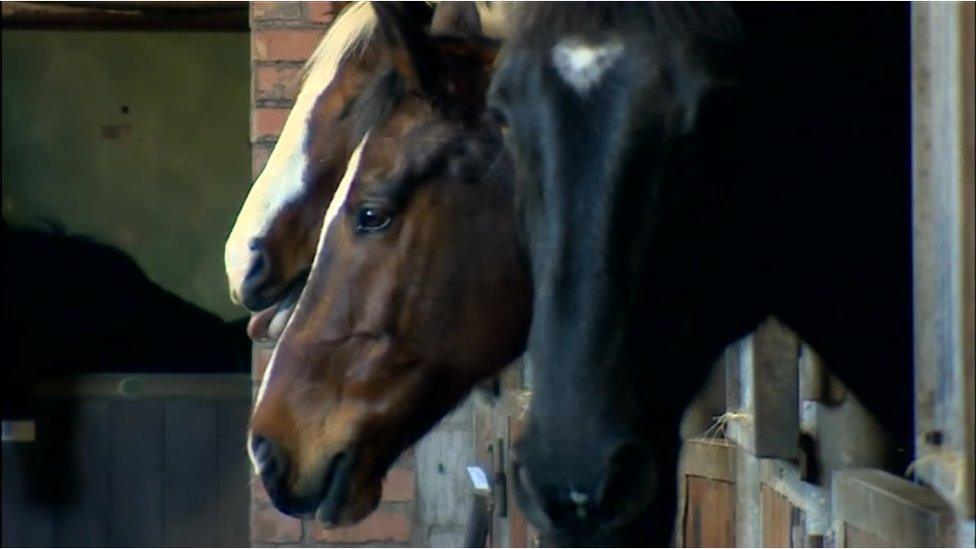
Horses risk physical deterioration without regular exercise
RSPCA equine welfare expert Dr Mark Kennedy said: "Exercise is so important for equines and ensuring their welfare; all horses should have access to a paddock where they can exercise every day, in the company of other horses, for as long as possible.
"Clearly the weather conditions at the moment can make things more challenging for horse owners, so ridden exercise is also likely to be important for some horses.
"We continue to call on decision-makers to do everything they can to ensure animal welfare is not unwittingly compromised as a consequence of any restrictions in place."
A Welsh Government spokeswoman said £1.7bn of finance had helped protect 125,000 jobs since the start of the pandemic.
"Reducing all physical contact between households to an absolute minimum is vital in order to slow the spread of coronavirus, which will help protect the NHS and, ultimately, save lives," she said.
"That's why under alert level four, the general rule is that people must stay at home, except for very limited purposes."
- Published23 January 2021
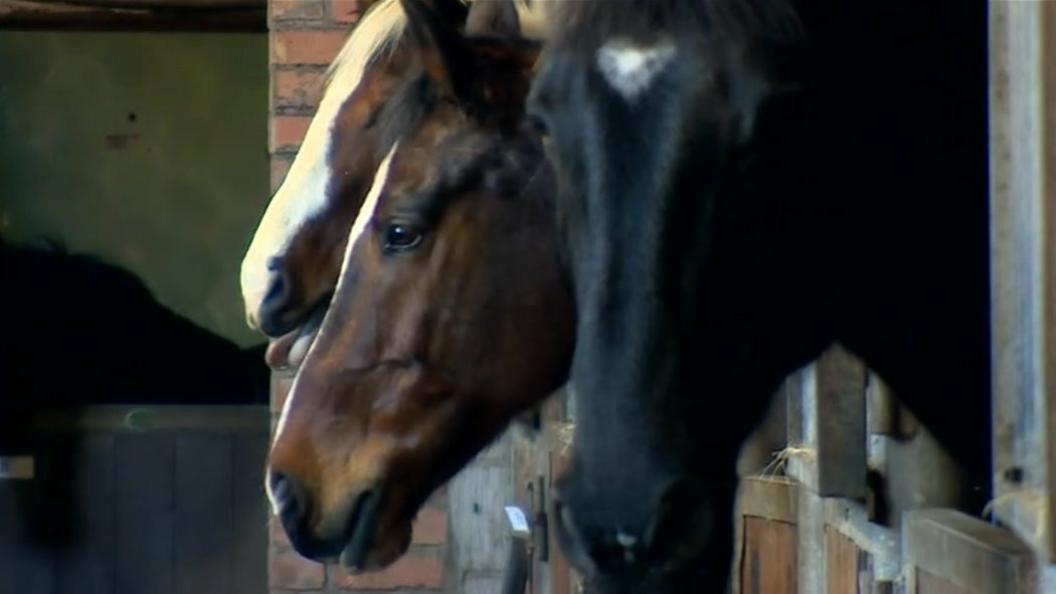
- Published25 October 2020
